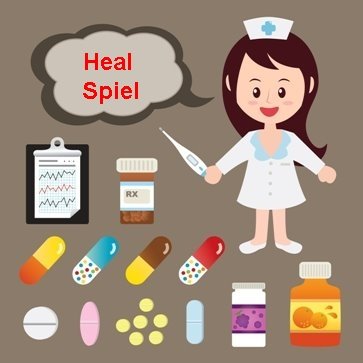Once in a while, I interview pre-med applicants to my school. While the medical students' evaluations are probably influential as only a low-NPV serial-killer screening test, I still very much enjoy doing them. This is because, if the applicants are eventually admitted, I get profuse thank-yous and friendly hellos for the entire subsequent year. Other than this experience, I have no knowledge whatever on the inner workings of the admissions chambers, so my insights are based on some post-call Gladwellian blinks.
Please note that Numbers 1 and 4 should not actually be followed by anyone, and are akin to obtaining a Golden Ticket by serially eating thousands of candy bars, or harassing hundreds of factory employees to unwrap them. It's just not worth it.
1) Take Physics for Poets.
And Literature for Actuaries. PE for Hobbits. Enroll in the easiest courses that fulfill pre-med requirements, and for which you almost certainly can earn an A- or above. The caveat here would be that you'd have to choose a somewhat traditional-sounding major, so it cannot be Fashion Merchandising, Liberal Studies, or Communications. Slightly newer, but still well-respected (and sometimes difficult, depending on your school- be careful!) majors, such as Women's Studies, as well as many interdisciplinary majors (i.e. Latin-American Studies) are considered fine.
My reasoning here is that, when it comes to course-work, admissions committees care mostly (though not exclusively) about Overall and Science GPAs, as well as a notable absence of Cs. A B- in "Physics for Future Nobel Laureates" is worth less than an A- in your standard Calc-based Mechanics course. Don't take any high-stakes gambles.
(For those now tuning in: Do NOT actually follow this advice. Take 4 years of Russian, a Combinatorics class, and a seminar on James Joyce. Keep your life joyous and a bit irrationally exuberant.)
2) Do your Undergrad at State School.
State school makes sense in general, and especially so if you are pre-med. It's generally easier to get an A in the science classes there. I know this statement may draw some contrarian personal testimonies from people who attended The University of Somewhere. The thing is, I know that many of the kids there are just as smart as the ones in Someone University, and that the teacher quality is likely the exact same. But the same student can often be in the top 10% of his Orgo class in a public school (also improving his chances for getting an excellent recommendation), rather than in the middling middle of an equivalent Ivy course.
3)Sign up for at least one test prep program, but not for any live classes.
Study by simply doing as many sample test questions as possible, starting on day one. Then go over the explanations and the reading material for anything you get wrong. You may get many or most questions wrong in the beginning. Still, do not waste time reading through the review books before you start taking practice tests. Take your MCATs in April, not August. Try to get at least a 30, unless you funded your school's infectious diseases institute (Treating Burmese children suffering from infectious diseases is not an acceptable substitute).
4) If Short on Time, Don't Dedicate a Huge Amount of Time to Clinical Experiences
While you should have some shadowing or hospital volunteering experiences, you do not actually need much of it. An EMT who has transported five patients looks roughly the same on an application as an EMT who has worked since age 16, has delivered a hundred babies, and can already interpret EKGs. The AMCAS does ask you how many hours per week you spend on each activity, but 5 hours vs. 10 hours per week probably doesn't get noticed. If stressed and cynical, think of marginal benefits.
(Repeated disclaimer: This advice is about what gets you into medical school, not about what you should do. To become a good doctor, take advantage of every opportunity you can to gain clinical experience. Some people cut corners without any one else ever noticing, but don't allow your values and ambitions to conform to this strategy).
5)Be Specific in your Essays.
When answering questions for your secondary applications, do not write "I am passionate about..." Have a strong, unique opening, even for those one paragraph answers. When addressing why you want to attend a particular school, refer to specific professors or programs. Don't use generic phrases like "Exceptional academics," "Excellent location," or "Outstanding research." Instead, say that you've always admired the [Insert Name] Free Clinic that Dr. [Insert Name] started, and you would like to volunteer there because he sees a lot of patients with [Insert medical condition], which is a disease you may want to specialize in.
(Don't lie. No one will ever know whether or not you are truly interested in that clinic, but to maintain your dignity, try to identify specific features of a school that you do actually care about.)
I know my take on medical school admissions is a bit cynical. However, even the most caring and mission-minded committee members must focus one eye on the US News rankings. The subsequent diplopia means that the theoretically best choices for pre-meds are not necessarily those that insure a successful application. If you find yourself sacrificing too many opportunities, I'd recommend dropping pre-med, enrolling in PA school, keeping your specialty of choice, and becoming a happy, dedicated, and productive clinician.
Stem Cell Stroke Therapy
3 hours ago




